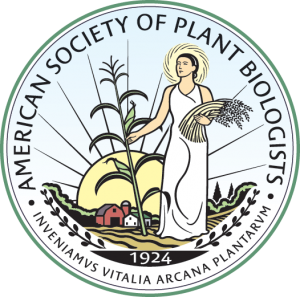Testimonials for Pioneer Member Peggy Lemaux
Bob Buchanan – Peggy has made a tremendous impact on plant biology. She has exceedingly high standards for science, was an excellent mentor to undergrads, and is very easy to work with.
Jeff Dahlberg – Peggy has been an inspirational leader and educator in her efforts to educate the public about genetics and GMO issues. She led in our efforts to utilize genetic tools to make improvements in crops through her early transformation work on maize and sorghum and has been a key proponent for the use of sorghum as a model crop for the study of drought mechanisms in a cereal crop. However, her greatest strength is her ability to reach out to the public and reassure people about the use of genetic tools for crop improvement. She is outgoing, friendly, and a mentor to many who have crossed her path, and it is my privilege to support this effort to recognizer her as an ASPB Pioneer.
Wilhelm Gruissem – Peggy Lemaux was an inspiring colleague during my appointment as Professor at UC Berkeley. As the Department Chair at the time, I had the privilege of recruiting her to our Department as an Extension Specialist and expert on crop biotechnology. Her knowledge and unwavering critical support of genetic engineering technologies for crop improvement has encouraged my own cassava and rice biotechnology research for the last 22 years. Peggy is a role model for perseverance in a controversial research field.
Thomas Kleist – Peggy is a pioneering plant biologist, outstanding mentor, and engaged citizen. From her many advances in plant tissue culture and genetic transformation to her outreach work educating the public about GMOs, Peggy has been an invaluable member of the plant science community. I cannot think of a more deserving recognition.
Steven Lindow – Not only has Peggy made major contributions to the development of methods for successful genetic transformation of cereal crops, but her diverse and effective outreach activities to educate the general public about the science and benefits of modern molecular approaches to improving crop plants has been instrumental in the rapid development of this important technology in agriculture.
Jaswinder Singh – When I think about my academic journey,the period of my postdoctoral (PDF) training with Dr. Peggy Lemaux at UC Berkeley is always at the forefront. This phase of one’s career is full of unpredictability, and like others I was not spared its ups and downs. The highlight of my time in Lemaux’s laboratory was a turning point in my career. Halfway into my fellowship I received a confidential letter from Peggy. I was nervous about the security of my job and the direction of my career. Stumbling and scared, before opening it I spoke to my wife, Dr. Rajvinder Kaur (PDF in Dr. Lemaux’s laboratory), regarding the future. While reading the letter, I could not stop my tears and the experience became a catalyst for my professional life. The message was positive and inspiring, and it removed many roadblocks in my research and academic career. It led to a strong foundation for my academic journey. Thank you! Peggy, I owe you more than I could ever repay. Humbly, Jaswinder Singh (Assoc. Prof. McGill University)
John Taylor – I had the pleasure of working with Peggy Lemaux on the EPICON project she led: the DOE-funded study of drought, sorghum and the associated bacteria and fungi. In my 50 years of research, I have never witnessed the equal of EPICON in terms of management, which was due entirely to Peggy Lemaux’s leadership and ability to keep every group on task. Unexpectedly, the largest coordinated shift in sorghum gene transcription occured when the plant encountered drought, leading to down regulation of ca. 200 genes that sorghum uses to manage its arbuscular mycorrhizal fungi. As soon as photosynthesis becomes impossible, the plant quits paying arbuscular mycorrhizal fungi for minerals and water that it cannot use. Without Peggy Lemaux’s leadership this remarkable reaction to drought would never have been recognized.
